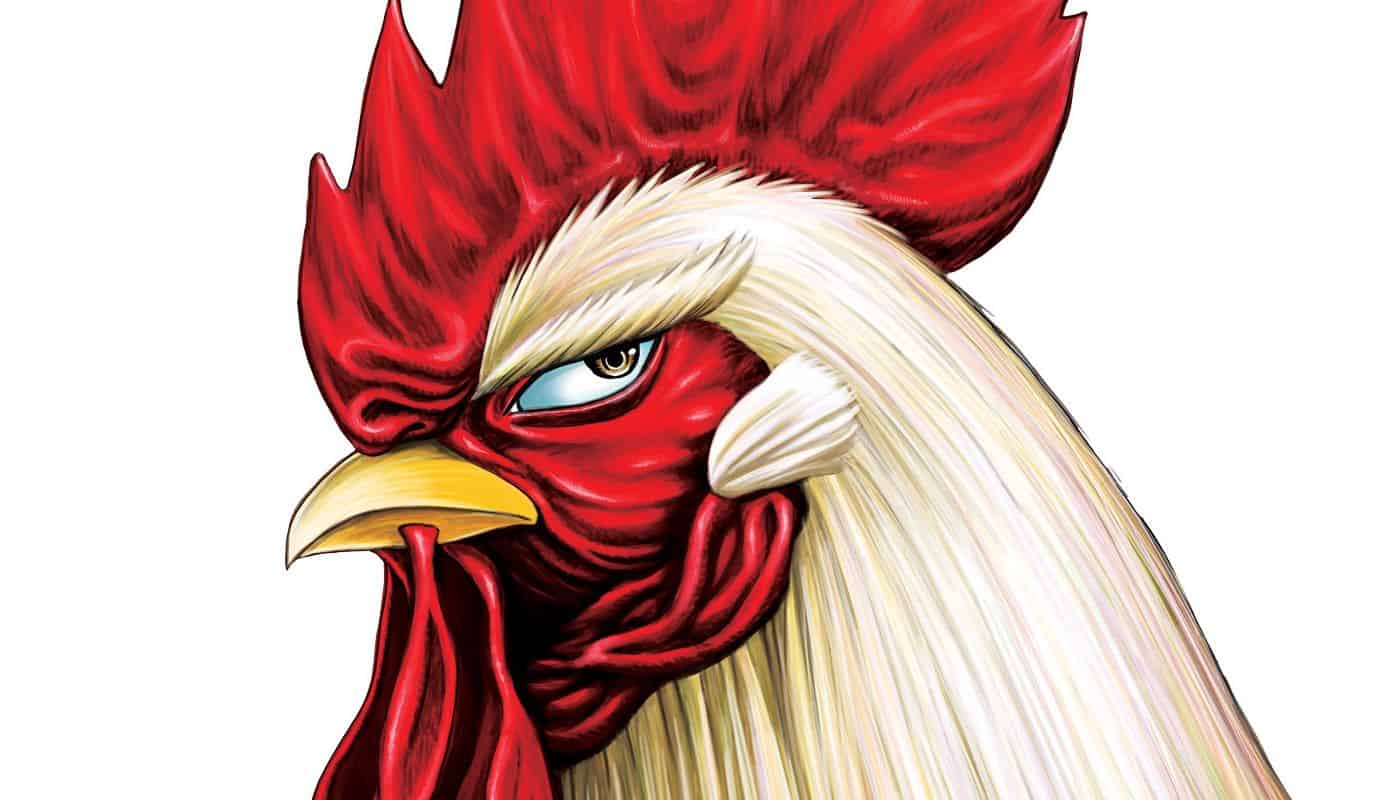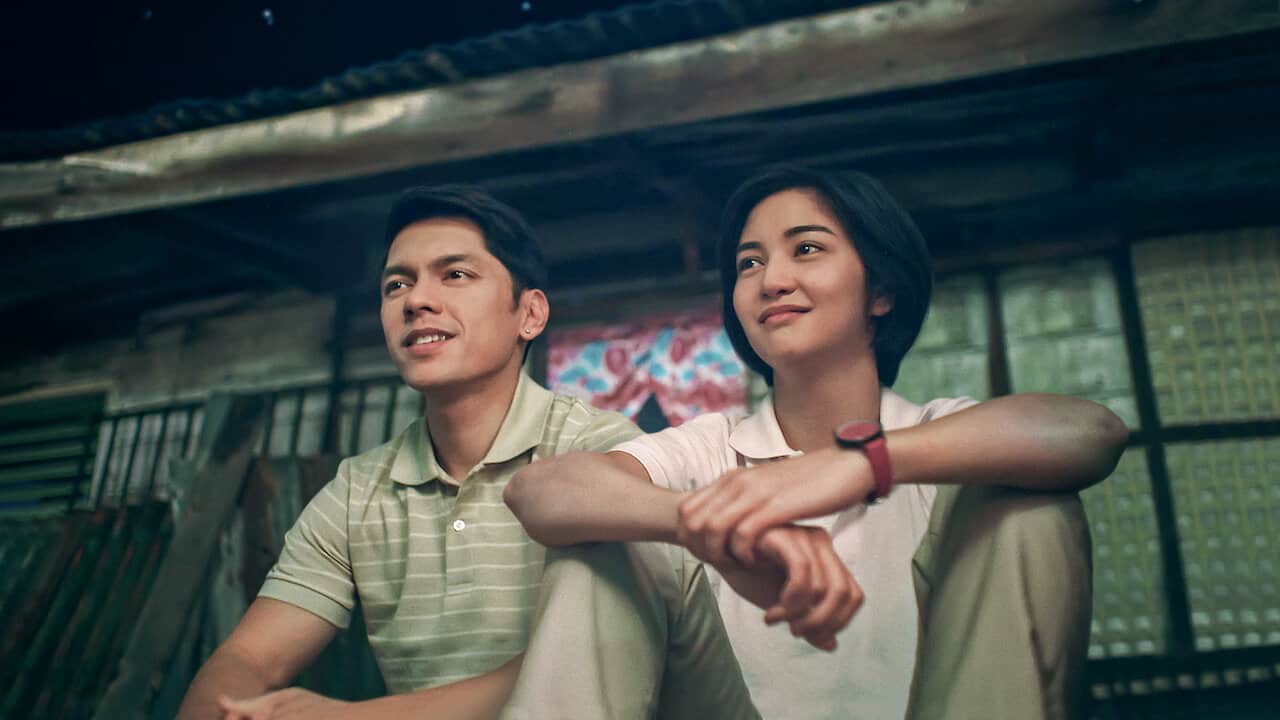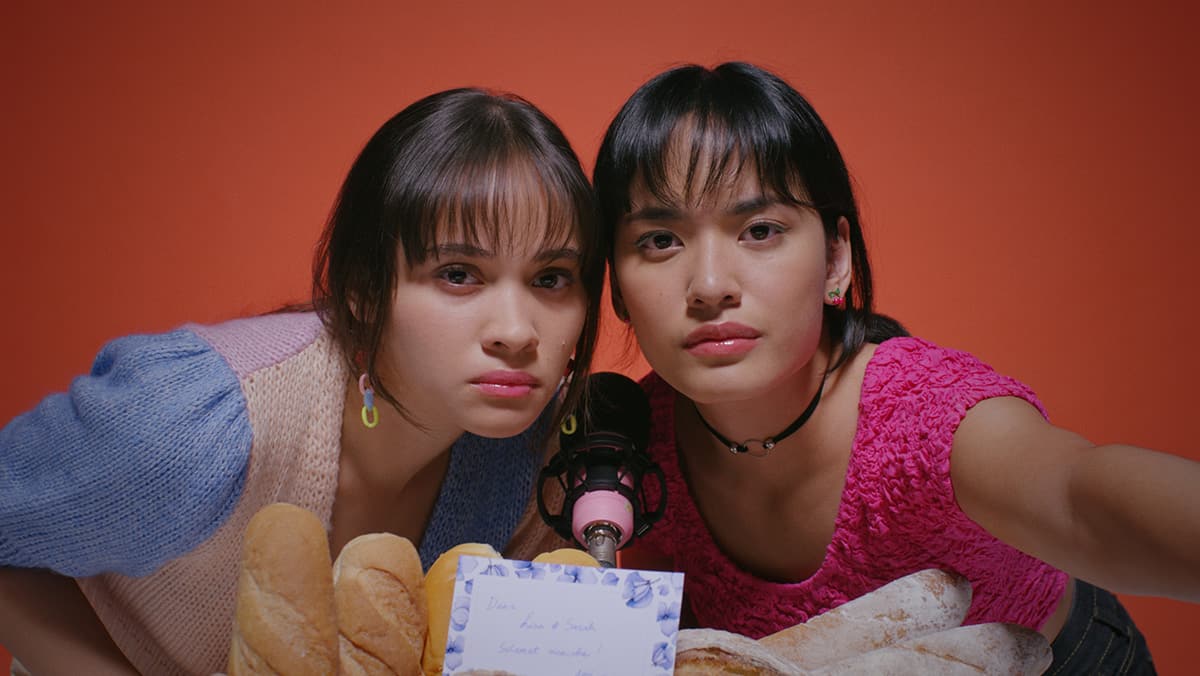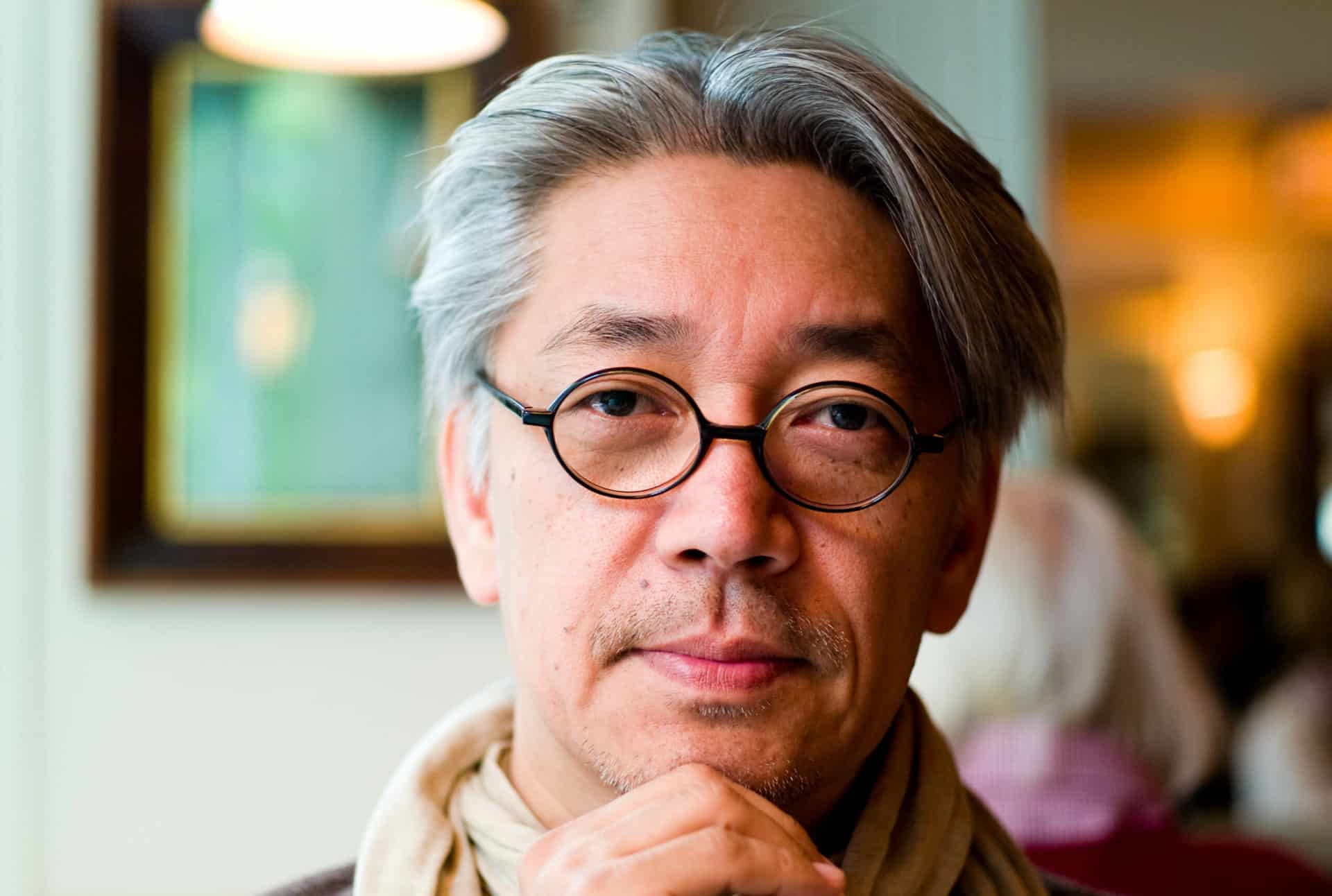A graduate of the Department of Arts and Crafts of National Taiwan Academy of Arts (today's National Taiwan University of Arts), Fan Yang-Chung has worked in commercials and film production for over a decade. In 2012, he won Best Fiction Short, Best Screenplay and Best Acting Ensemble of Golden Harvest Awards with “The perfect past of IF”. In 2013, with “The Will to Power”, he won Best Supporting Actress of Taipei Film Awards and four Golden Bell Awards, including Best Miniseries or TV movie, Best Supporting Actor in a Miniseries or TV movie, Best Directing for a Miniseries/TV movie and Best Writing for a Miniseries/TV movie. In 2021, he released his first feature film, “Leave Me Alone”, which was nominated for Best Supporting Actress and Best Art Direction of the 58th Golden Horse Awards.
On the occasion of “Leave Me Alone” screening at Osaka Asian Film Festival, we speak with him about the world of hostesses, prostitution and art, Taiwanese society, the sex scenes and the visual approach of the movie, and many other topics.
“Leave Me Alone” is screening at Osaka Asian Film Festival

What was the inspiration behind “Leave Me Alone”?
The main source of inspiration came from some people I know, residents of a military-dependent village and their stories, and that is what made me write the particular story.
Did you do some kind of research regarding the world of hostesses?
Before the shoot itself, and also during the scripting stage, I did actual field research, in the sense that I went to the locations as well, and I also brought the actors with me in order for them to research their roles.
How did they feel visiting these clubs?
At first, my actors were not very familiar with the world of hosting, that kind of lifestyle, and they also used to look down on people who had this kind of job. However, when they entered the world and actually spent time with the people there, they found out that they are not so different, and they understood some of the reasons why people pick this occupation. There was a greater understanding from that. It helped them to develop a sense of empathy.
Do you think there is something common between prostitution and art?
I actually believe that on some levels, art and prostitution share some similarities. For example, on a surface level, both in art exhibitions and prostitiution you are frequently seeing very beautiful women surrounded by wealthy men, and they kind of have to make the men happy. On another level, if you look at the idea of value or the worth of something, I also see a similarity. For example, in art, the value of something is decided by the buyer as well as the purchaser, there isn't an affixed value to begin with. In sex work again, it is an agreement between the client and the worker. It really depends on the person. I feel these are the subtle similarities between the two.
Would you say that the Taiwanese society is segregated, there are distinct classes?
Yes, I believe that classes do exist. Maybe the gap is not as prominent as in some countries that are somewhat less developed or face more significant issues, but due to the presence of income inequality, there are different identities so it is really hard not to have differences in social standards and social class.
Which class would you say you belong to?
(Laughter) Most probably, in the lower middle class, because of my chosen profession, because it is hard to make money in this field. However, I would like to stress that, in Taiwan, most of the decisions you see in society are economical in nature, so there is not so much like a caste or anything to do with your bloodline, it always revolves around money and finance.
Can you give us some details about the whole endeavor of redevelopment in the country? Is there corruption involved?
Corruption can indeed become a factor when it comes to the redevelopment of old buildings, which may include military dependents' villages in Taiwan
The two protagonists of the film, are they in love or are they just using each other?
In the beginning, they were using each other but it came to a point, when they lost each other, that they realized that there was something hard to explain regarding their dependency on each other. I would not go as far as to say that this is definitely love, but there was a significant emotion they felt. The actors themselves, when they read the script, they did not think that it was love as well, they also thought that their characters were using each other, but towards the end of the film, they also felt that there was also a new emotion that it was hard to explain.
Would you say that Loong is a nice guy, a good person?
In my eyes, he is a good person, someone who wants to be good to people. It is just that he is not exactly very smart in expressing that goodness, his actions don't seem to show his intentions adequately. Even when it comes to his father, he actually does believe that if he were to move out of their place, it would be good for him and that is why he puts so much effort to make money, in order to ascertain a better future for his father.
Could you be friends with him, though, if he actually existed?
Yes, because I am the one who came up with the character, so I know his inner world very well and that is why I do believe we could be friends
Could you give us some details about the scene where Nai-wen gets out of the car in the middle of the street?
At first, when we started filming that scene, we did not anticipate it was going to be difficult, especially because we kind of managed to secure a bridge to film in. However, there was a lot of stress in the actors due to the location and the surroundings. In previous rehearsals, which took place on a different road, the actors were not really ‘in character' so we did not anticipate much difficulty. However, on the day when the logistics were sorted with the transport, and because the film was shot chronologically, the actors were emotionally already ‘there', in character, so their performance was very good. It did not take as much time as we anticipated
How about the sex scenes? Were they difficult for the actors, and how was your approach in that part of the movie?
At first, we thought that it was going to be quite difficult. The first level of difficulty was, of course, the shot itself, because we had to frame the shot and take care of not revealing too much of the actor's bodies. So, it was designed. I would not say choreographed but thought was put in how the scene would actually look on film. But for the actors, apart from knowing what they were supposed to do, they also had to be in character, so that was another added layer of difficulty. What helped, though, was that they put a lot of trust on the team, that the team would look after them and protect them. It is of course a little harder for Eastern actors, because they are a bit more conservative compared to Western ones, so there would be a little more difficulty in doing those scenes.
How did the casting work for the movie?
The first person we decided to cast was Christina Mok, so we cast her quite early on. Actually, I was hesitant at first if she would be able to meet the character I had in mind. So, we sent her for classes, we did a number of screen tests and we gave her a lot of homework as well. As for Fandy Fan, he was the last person we had a screen test for, so he was the last one we discovered. What drew me to him was his gaze, because I saw the goodness of Loong as a person in his eyes. Another thing that left a big impression was that he has actually made the round of Taiwan on foot, he traveled the entire island on foot.
Then we got the two of them to do a screen test and it was not quite up to my standards, but I felt, as I was watching their expressions and the way they acted, that I could work with it and bring out the characters. Chen Yi-wen's character is a more functional one and it was my choice to pick a veteran. In general, I wanted the supporting actors to be more experienced, because I felt I would have to put more effort into guiding the protagonists, because they had less films under their belt. I felt that the supporting actors would also be able to guide the main actors in this particular case.
How about your cooperation with DP Hsia Shao-Yu and your general purpose in the visual aspect of the movie?
I have known him for over 20 years and in many ways, he is my mentor because he is older than me. What we both endeavored to do was make sure that the cinematography is hiding behind the performances and we are aiming at some sort of soft sadness. We wanted the visuals to build up very slowly so they were not “in your face” all at once. This of course included lighting, costumes and art direction, in order to create a subtle but lasting impression to the viewer.
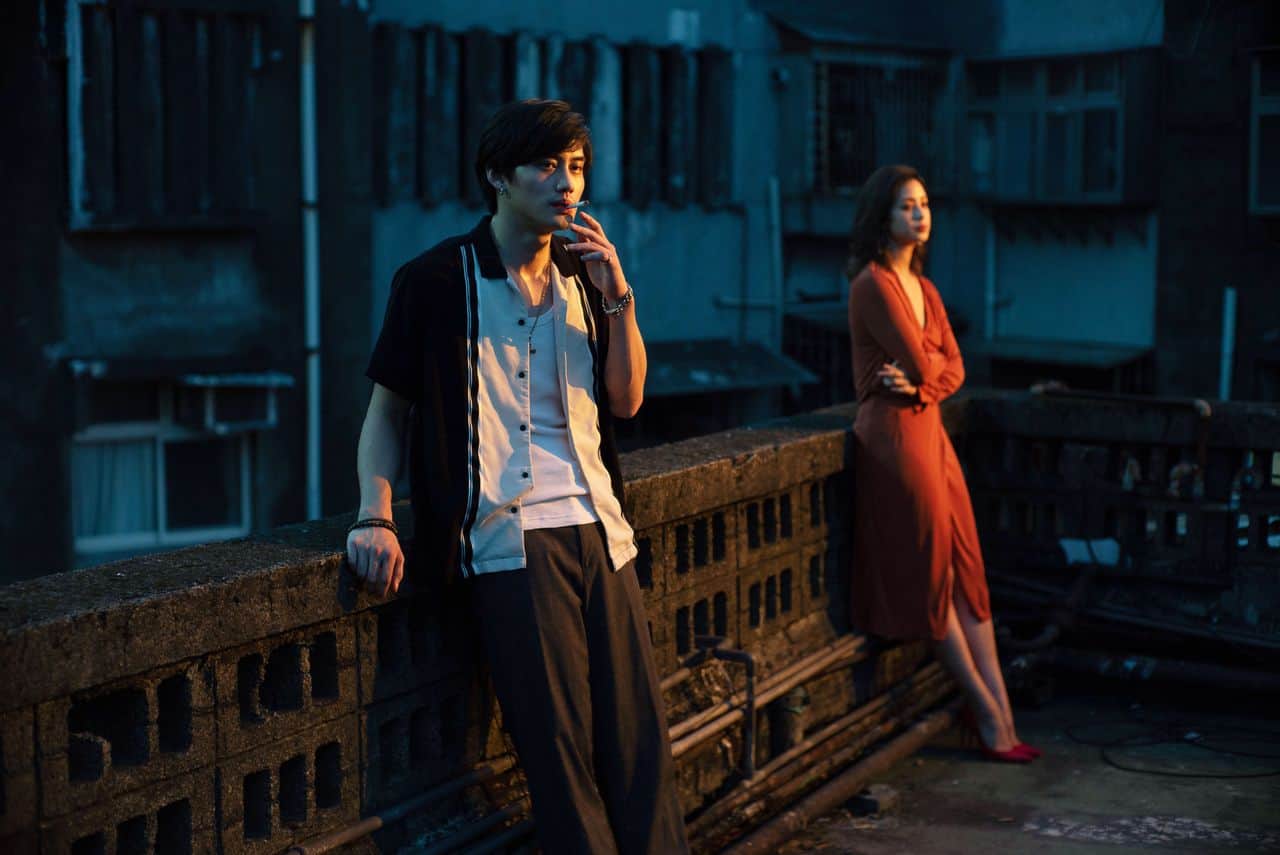
In the end however, the image that was presented on the screen, as dictated by cinematography, coloring, even the appearance of the actors themselves is one of utter beauty.
Regarding the characters, the main protagonist, Christina Mok, was the only actor that actually had to be beautiful in order to fulfill the role. Apart from physical beauty, this element also extended to the wardrobe and the overall creation of the environment of this character. Regarding the other actors, however, it was not intentional. Other people also mentioned how aesthetically beautiful the film turned out to be, but that was not our original intention. Instead, it was for the visuals to provide a clarity to the story so that it is easy for the audience to understand. Essentially, it was a coincidence, but also happened because everyone was working towards the same direction.
What is your opinion of the Taiwanese movie industry at the moment?
This is my first film, so I cannot exactly comment on the industry but I do think it is moving in a good direction. I think it reached a low point, but now, more and more people are actually watching Taiwanese films, commercial or independent ones, which is a very good thing.
Are you working on any new projects?
I don't have any definite projects but I am working on something. I have a story I want to tell but I am still exploring it.





